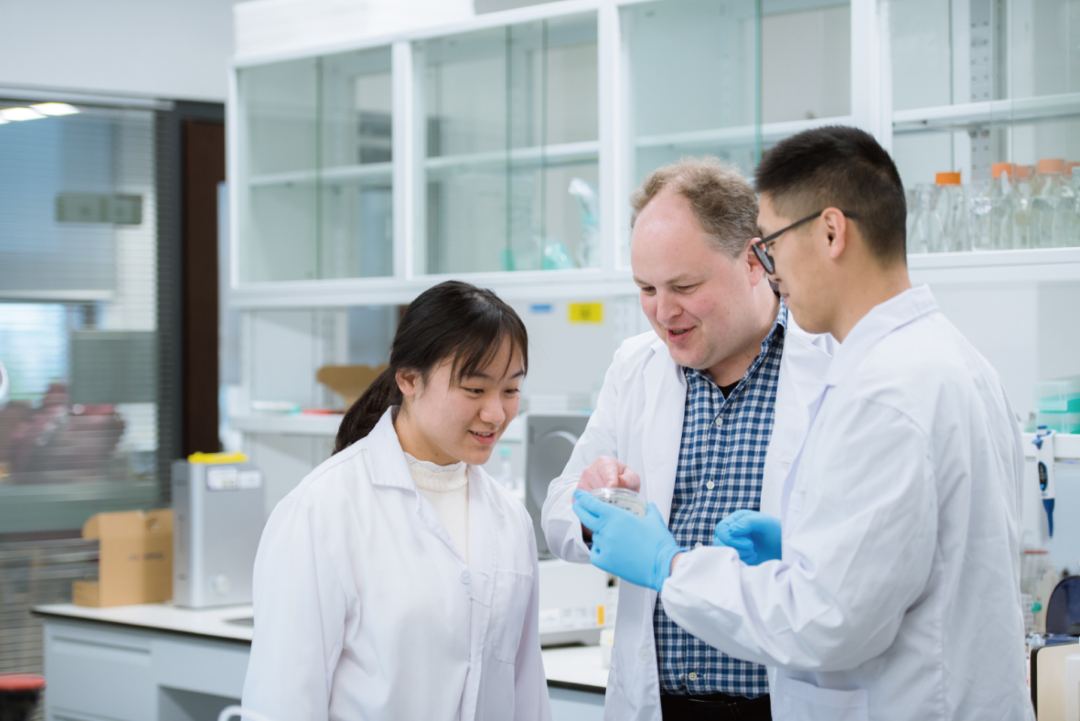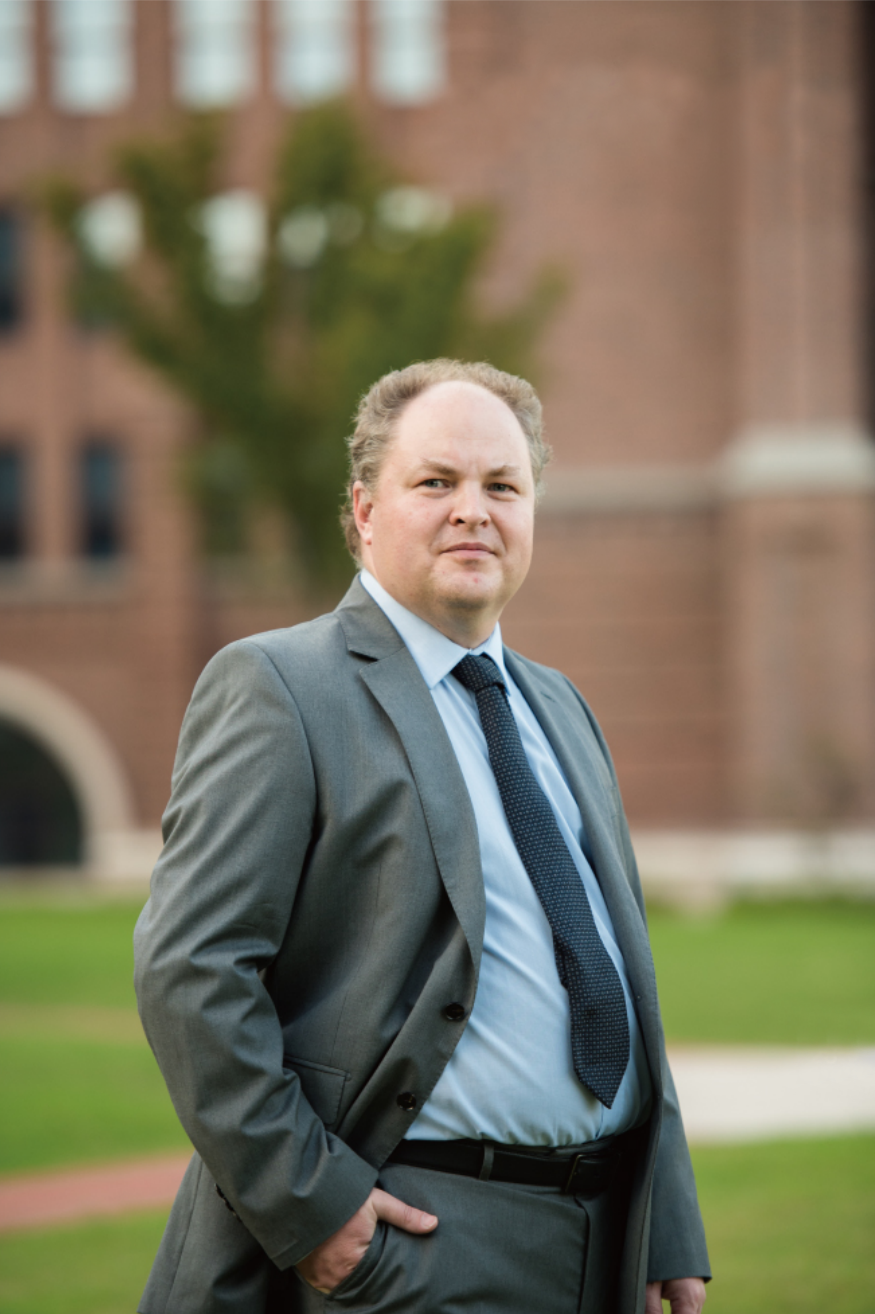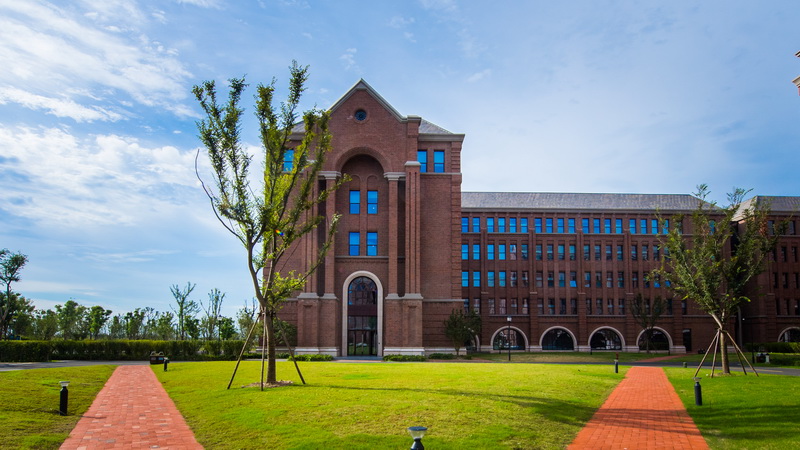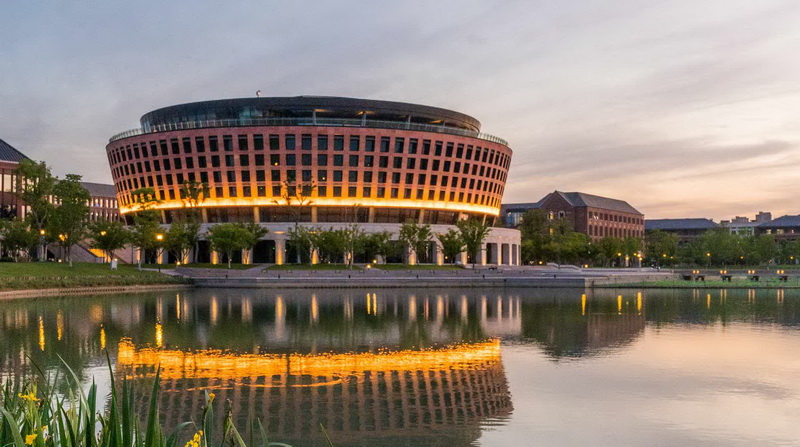【Message from the editor: In this series, teachers will tell the story about why they choose the International Campus and share their research and teaching lifes, they will explore their dreams and set goals for the future. Today, let's meet Mikael Bjorklund, who obtained his PhD (Biochemistry) from University of Helsinki, Finland, in 2004. After a very successful post-doctoral work also at the University of Helsinki, he started his own lab in Scotland with a prestigious Career Development Fellowship from the Wellcome Trust. In summer 2018, Mikael came to the Haining International Campus and ZJE Institute as an associate professor. His research is focused on cancer cell biology, specifically the growth and metabolism of cells.】

Due to my research interest in growth and metabolism of cells, I am generally interested in all forms of growth. China has been growing very fast on multiple fronts and such growth is in many ways similar to the growth of cells and organisms. When I first learned about the joint biomedical institute between Zhejiang University and University of Edinburgh (ZJE), I thought that it was a very exciting experiment. Attracted by the reputations of these two world-leading universities and the Chinese investment in research capacity, I was naturally interested in such an exciting experiment.
Unlike any of my experiments in the lab, the ZJE experiment was going to be very different. Rather than observing growth of cells, joining ZJE would mean to personally experience growth and development of a joint biomedical institute, an International campus and of Chinese research and higher education. While I am curious just like most (if not all) of the foreign teachers who have moved here, I am not the most adventurous person. Moving far away from home and from my comfort zone is never an easy choice. However, when I came to visit Haining in Autumn 2017, the ZJE Institute was very familiar in many ways: It felt good to have active links to Edinburgh and Scotland, because I had been living in Scotland for almost 10 years before coming here.
Namely, that mixing the best practices from east and west should lead to something totally new. I also find that when you are immersed in this international environment and you start thinking of the educational philosophies of east and west, it is not that clear what these best practices are!
With the relatively small number of students we have now, it is easy to interact with them in various settings from small group tutorials, practicals and lectures to lab-based research projects. However, I sometimes wonder how we can adjust our teaching to maintain the same high standards when the campus is running at full capacity! I hope that as faculty, we can provide our students with all what they need for a successful future career in biomedical sciences and beyond. Surely, a dual degree from Zhejiang University and University of Edinburgh will look good in anyone’s CV, but what eventually counts is that our students learn to ask the right questions and have the right skills to work on the most important challenges in biomedical sciences. I am particularly excited and proud for our Biomedical Informatics Dual Degree Programme.
Science today is more and more about the ability to handle increasing amounts of data and turn this data into useful information. After all, regardless of the work you are doing, it is essential to make informed decisions and draw conclusions, which are based on quantitative understanding of often very complex data. I sometimes wonder if our students realize how fortunate they are as most scientists of the previous generation (including myself) had no formal training in quantitative and computational skills during their undergraduate or graduate studies. I am so happy to see that our students are becoming more and more comfortable in using R, Python and other computational approaches in their studies and lab work!
Time will tell how our campus will develop, but it is very motivating to see people working together for achieving such an ambitious goal. I find it really fascinating to be immersed in exponential growth from inside, albeit only as one very small component of the whole system. Perhaps by being part of the progress I may learn something universal about growth, which could even be applied to my research.

Personal life and development as a faculty member at the International Campus
I am not so fond of big cities, therefore Haining feels like an ideal city to live in. I can only admire the beauty of the campus, especially in the early morning sun when walking to work. But it is not only the architecture or the time saved from commuting when living on campus; I have thoroughly enjoyed the many activities organized at the International Campus, including a Chinese language course and introductions to the Chinese culture. I particularly liked learning about the Chinese tea culture and dumpling making. I sincerely wish we could have even more activities like these.
Coming originally from Finland, the country with thousands of lakes, I also enjoy my regular walks around the Juan Hu lake (or just around the campus if I am feeling lazy). Of course, all these positive experiences need to be balanced with the fact that the summer in Haining is far too hot for someone coming from one of the Nordic countries. There are obviously also occasional and unexpected challenges associated with starting a very complex operation such as our institute and the campus. Despite these, the friendly people and all the cultural activities have made a big difference in feeling at home despite being far away from my real home, as the Staff Apartment mission statement so aptly describes.
To summarize my experience so far: It has been an interesting and professionally rewarding time to be part of ZJE and the International Campus. The familiar and new elements related to living and working here have already melted together to form the new normal. We are in good progress of building a first-class research and teaching institute and the inflow of brand-new instruments to our core facilities is really exciting. That and having recently secured my first grant from the National Natural Science Foundation of China means that the prospects of doing high-quality research are getting better and better. Obviously, there are still challenges in finding the common language both literally and also in the ways we need to work together in a multicultural institute. Nevertheless, our hard-working students are continuously reminding me why ZJE at the International Campus of Zhejiang University is a great place to live and work.
Article: Mikael Bjorklund





